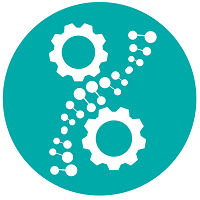Manufacturing & Analytical Characterization
Harnessing AI for Enhancing Risk Assessments in Pharmaceutical Scale Up
Tuesday, October 22, 2024
9:30 AM - 10:00 AM MT
Location: 155 E

Indrajit Jagtap (he/him/his)
Director
Intelimek LLC, India
Speaker(s)
In pharmaceutical manufacturing, various processes present specific risks that require tailored mitigation strategies. For instance, in solid dosage form production, risks such as equipment malfunctions and material variability can lead to inconsistent tablet quality. Ensuring material properties meet specifications is crucial. This helps mitigate risks associated with equipment malfunctions and material variability. AI, coupled with process simulation models, enables proactive risk assessment, ultimately fostering a culture of continuous improvement in pharmaceutical manufacturing.
This session will present a roadmap for leveraging AI technologies in risk assessment due to material variability in process scale-up. A step-by-step approach will be demonstrated using the blending unit operation. This approach considers the properties of powders, blenders from lab to production scale, material characterization, automated process simulation models and their validation, and the use of AI to expedite the process.
This session will present a roadmap for leveraging AI technologies in risk assessment due to material variability in process scale-up. A step-by-step approach will be demonstrated using the blending unit operation. This approach considers the properties of powders, blenders from lab to production scale, material characterization, automated process simulation models and their validation, and the use of AI to expedite the process.
Learning Objectives:
- Gain insight about application of AI in pharmaceutical manufacturing and adoption journey
- Know more about effectiveness of AI with a case study related to pharmaceutical scaleup studies
- Get perspective about how other industries are adopting AI, especially in research and engineerinng and draw parallels with pharmaceutical industry

